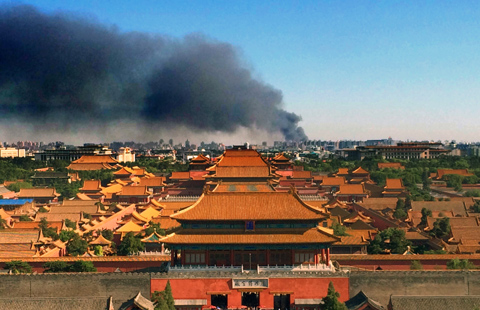Economic growth driving force for China's future mobility
Updated: 2015-07-02 10:03
By LIA ZHU in San Francisco(China Daily USA)
|
||||||||
Continued economic growth will be the most critical factor for China's mobility and automobile use in 2030, and its constraints on vehicle use and environmental regulations will also be key drivers, according to a report published on Tuesday by Rand Corp, a non-profit think tank.
The report, The Future of Mobility: Scenarios for China in 2030, says the uncertainty of those factors as well as the market size of China make it important to create different mobility perspectives for decision-makers to prepare for future developments.
With the rapid growth of the middle class and a burgeoning population, researchers studied contributing factors that could either hinder or help mobility in China, and discovered three potential driving forces: the pace of economic growth, constraints imposed on vehicle-ownership and use, and environmental conditions.
The report argues that mobility is a key element in China's trajectory to middle-income country status and its ability to deliver a higher quality of life to a growing population, which depends heavily on overall growth.
Chinese policymakers must decide whether constraints that have curbed vehicle-ownership should be maintained or strengthened, said Liisa Ecola, lead author of the report and a transportation researcher at Rand.
The potential for transportation policymakers to influence economic growth and environmental conditions may be limited, but they will have greater opportunity to use constraints on vehicle-ownership and use to reduce the growth in travel demand, which is continually being spurred by the growing middle class, according to the researchers.
As of November 2014, more than 10 million automobiles were added on China's roads annually, and 35 cities each had registered more than 1 million automobiles. So far, eight cities, including Beijing, Shanghai, Guangzhou, Tianjin and Shenzhen have instituted constraints on vehicle-ownership.
The report predicts that constraints on driving and vehicle-ownership might play a large role in China's mobility in the future if growth continues, and congestion and parking scarcity reach unacceptably high levels.
"They [constraints] could steer China toward a future in which ownership is less important than access - suggesting a major role for car-sharing services and the technologies that enable them," the report says.
Decisions must be made about whether environmental conditions will require further regulations, said Ecola, as environmental investments might take resources away from transportation capital, and environmental issues might affect travel demand.
The way public transport systems in urban areas will be promoted in the future also will have a tremendous impact on the way the Chinese mobility market will look in 2030, the report said.
With data based on expert opinions about the long-term future in demographics, economics, energy, and transportation supply and constraints, the researchers simulated two distinctively different paths for China's future mobility.
One of the scenarios assumes that continued economic growth will fuel demand for automobiles, including hybrids, but cities also will invest heavily in transit and other means of mobility, which will result in a future of strong travel demand across all transportation modes.
The other scenario assumes that the Chinese economy goes through a downturn marked by instability, incomes do not rise quickly, and travel demand grows more slowly.
With the aim of shedding light on whether automobiles will continue to rise in popularity and whether policies are needed to manage automobility, the report recommends that decision-makers anticipate and prepare for change.
liazhu@chinadailyusa.com
- Mass casualties in Indonesian military plane crash
- Japan's LDP lawmaker denounces Abe's security policies
- More than 100 feared dead in Indonesian military plane crash
- More than 50 may die in Indonesian plane crash
- Japan's Diet gets 1.65m signatures against security bills
- Thailand's first MERS case declared free of deadly virus

 Obama hails new chapter in US-Brazil relations
Obama hails new chapter in US-Brazil relations
 Boxers top Forbes highest paid celebrities list
Boxers top Forbes highest paid celebrities list
 Not so glamorous: Glastonbury ends with sea of rubbish
Not so glamorous: Glastonbury ends with sea of rubbish
 Ten photos you don't wanna miss - July 1
Ten photos you don't wanna miss - July 1
 Top 10 telecom companies in the world 2015
Top 10 telecom companies in the world 2015
 Homes on the wheels
Homes on the wheels
 Ten photos you don't wanna miss - June 30
Ten photos you don't wanna miss - June 30
 Man makes run for the money with business
Man makes run for the money with business
Most Viewed
Editor's Picks

|

|

|

|

|

|
Today's Top News
Economic growth driving force for China's future mobility
'Operation duck' and the student savior
White House lifts ban on cameras during public tours
China, Canada seek to increase agricultural trade
A Canadian comes to Xi'an, finds personal, business success
Fewer Chinese seek US grad schools
US, Cuba to announce reopening of embassies on Wednesday
China bests MDGS for improved drinking water, sanitation
US Weekly

|

|







